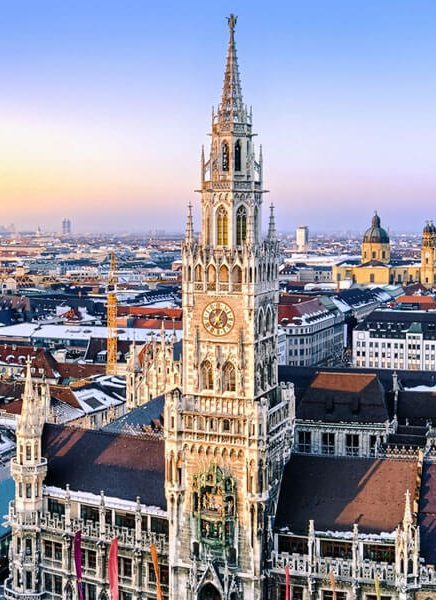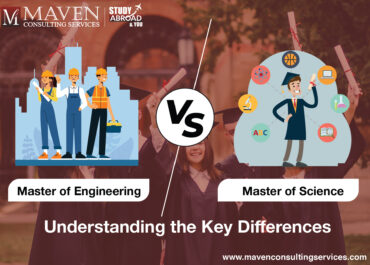The Difference Between A Masters In Management And An MBA

MBA and Masters in Management (MIM) are advanced professional degrees that students seek to boost their careers.
We have all been hearing about the opportunities an MBA degree brings. Masters in Management recently came into popularity, bringing in new opportunities.

What is MBA?
An MBA programme focuses on business leadership and management skills.
The MBA degree is designed for individuals who have a few years of professional experience and are looking to advance their careers.
An MBA degree covers different business topics through a core curriculum and allows students to choose and specialize in fields such as business analytics, accounting, and finance.
What is MIM?
MIM, or Masters in Management, only focuses on specific areas related to business management. A Master’s in Management degree offers insight into the business field to students who do not have much experience or knowledge of this field.
Compared to an MBA degree, a Master’s in Management is less demanding and more introductory. Programs offer general business courses, but mainly the coursework focuses on management.
MIM or MBA, Which is Preferred?
According to the 2020 GMAC survey, there is an 80% increase in the applications for Masters in Management programs.
Although it is said that with the growing popularity, a Master’s in Management is becoming the alternative to an MBA programme, both degrees complement each other and offer different content and goals to students.
Here, we have compiled all the similarities and differences between these degrees to help students choose according to their interests.
Difference Between MIM and MBA
The main difference between these degrees is the work experience students must-have for these degrees.
MIM is the best option for students with little or no professional experience. Universities or colleges that offer a Master’s in Management do not require students to have a business-related undergraduate degree.
MBA students must have three to five years of professional work experience in the business field.
What makes Masters in Management and MBA students different?
The most significant difference observed between the students of MIM and MBA is the level of professional experience.
The Master’s in Management program is designed for students with little professional experience who want to develop their business skills.
The MBA program is designed for individuals who are professionally skilled with several years of experience and are searching for an opportunity to advance in their careers.
The extra work experience of MBA students also adds extra digits to their age. The average age of an MBA student is said to be 28 years, ranging from 25 to 32 years.
Since the bar for work experience is low for Master’s in management students, it limits their age to 25 years. The average age of a Master’s in Management student is 23 years, varying from 21 to 25 years. As can be seen, Master’s in Management students are much younger than MBA students.

Masters in Management vs. MBA – A Comparison
Master’s in Management programs are designed for individuals looking for entry-level jobs in the management and business fields. Usually, people looking for a career change from non-business to a business field or who have recently obtained their undergraduate degree tend toward a Master’s in Management. Typically, these programs require a one-year commitment where the entire focus is on developing management skills.
MBA programs are designed for individuals who already hold a leadership position and are looking to advance to executive-level positions or switch fields, aiming for promotions or switching to high-paying jobs.
Most people tend to get an MBA to enter the consulting or finance field. An MBA is usually a two-year program where students learn how different departments interact within a company.
MBA programs include subjects such as Strategy, Finance, Marketing, Ethics, and Communication as core courses. MBA programs also offer specialization in fields such as Accounting, Business Analytics, Entrepreneurship, and Health care management.
Since a Master’s in Management is shorter than an MBA, it is less expensive.
MBA vs. Master’s in Management – Career Opportunities
A Master’s in Management does not immediately offer a management position, but it provides a chance to enter the business market smoothly.
Since Master’s in Management students tend to be starting their careers and MBA students are in the mid or upper level in their careers, the salary outcome is different and challenging to predict.
There is a difference in salaries, but it is seen because of work experience and not a degree.
Students with both of these degrees are in high demand in the job market. A recent survey stated that 91 percent of companies globally anticipated hiring MBA graduates, and 54 percent anticipated hiring Master in Management graduates.
Master’s in Management or MBA: Which one is better?
The Master’s in Management and MBA are both management programs, but their contents are different and will align differently according to different people and their goals. These degrees are designed to help students move forward in their business careers with appropriate management skills.
A Master’s in Management is a Master of Science. It can offer in-depth theoretical knowledge and lead to research. A person who is a recent graduate or is looking to change careers may find it relevant to their interests.
Master’s in Management students focus more on theory and use statistics in their studies. It provides an introduction and general knowledge of business and Management. At the same time, the MBA focuses more on actual business cases.
MBA focuses more on problem-solving skills, which can help students find solutions to different business problems. People who are already a few years into their professional careers may find an MBA relevant to their interests.

Reputation and Recognition:
The MBA is a widely known and popular post-graduate management degree. The reputation of an MBA degree also depends on the reputation of the university where it is given.
A Master’s in Management is growing in popularity with time. Many firms doubt the capabilities of a Master’s in Management student, but with the growing demand for supply and chain, firms will become aware of their abilities.
Overall, it is a career start on the one hand, while on the other, it is about career development. A Master’s in Management is to start a career, and an MBA is to develop a career.
Conclusion
Both the Masters in Management (MIM) and MBA degrees offer their own unique value propositions. A MIM caters to fresh graduates or those changing careers, offering an introduction to business management, focusing more on theory and statistical analysis.
On the other hand, an MBA is tailored for professionals with several years of experience, emphasizing practical problem-solving skills in business.
Thus, the choice between these two should align with an individual’s professional experience and future career goals. It’s important to remember that the value of the degree also greatly depends on the reputation of the university.
Don't forget to share this article










